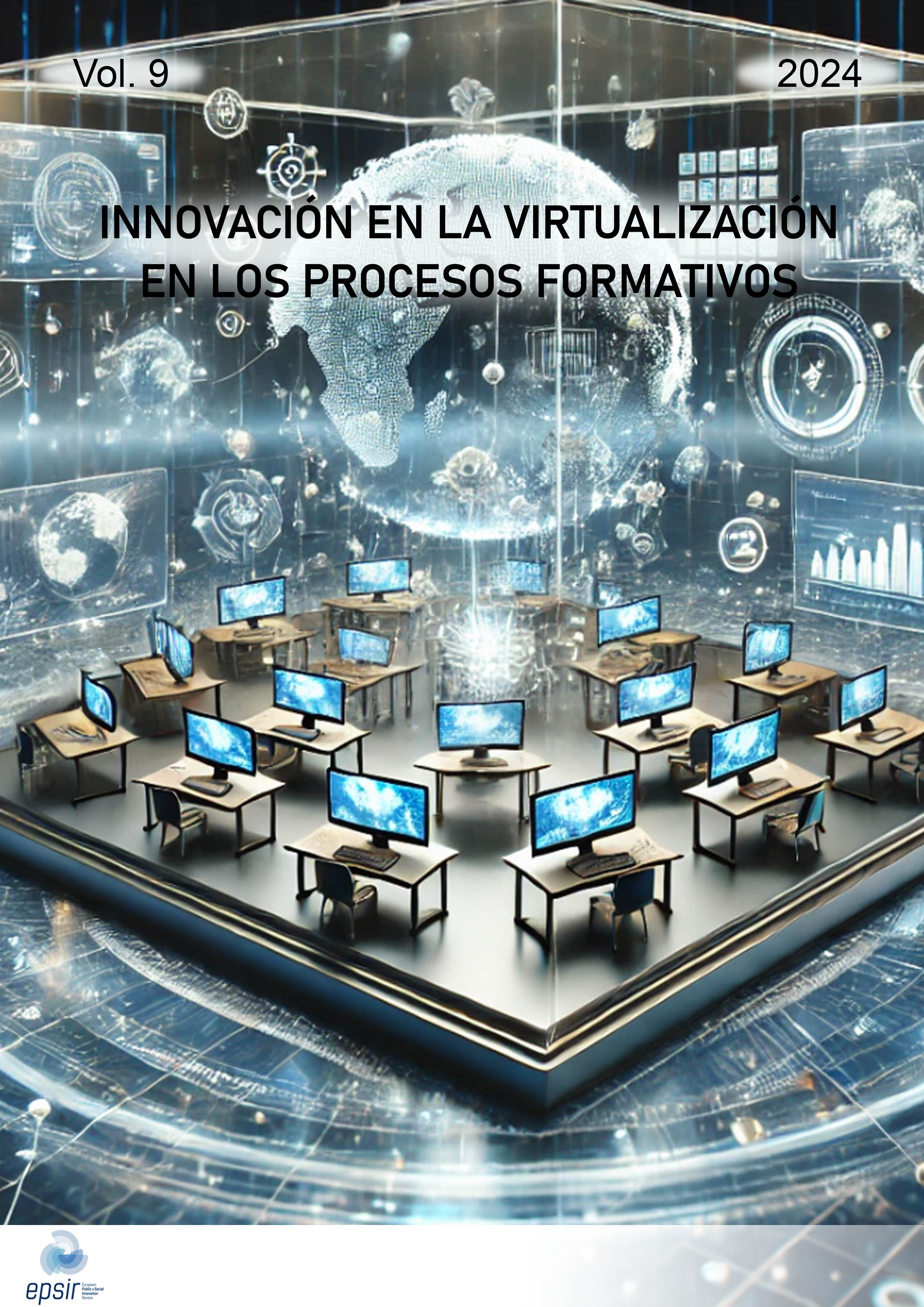Innovation in the virtualization of training processes
DOI:
https://doi.org/10.31637/epsir-2024-1731Keywords:
Artificial Intelligence, Inclusive education, Metacognition, Collaborative learning, Digital toolsAbstract
Virtualization has radically transformed the global education and training landscape, driven by technological innovations and social changes resulting from the COVID-19 pandemic. This transformation has given rise to new pedagogical models, hybrid methodologies, and the use of digital tools that facilitate learning in both face-to-face and virtual environments. This monograph aims to explore innovations in the virtualization of educational processes, analyzing the challenges, opportunities and strategies associated with the incorporation of emerging technologies in higher education, as well as the digital competencies needed to adapt to these changes.
Downloads
References
García Pereira, M. G. (2018). Las TIC en la Educación Inclusiva Incorporación de las Aulas Virtuales como estrategia para la enseñanza y aprendizaje de ciencias en ProCES Semipresencial. http://repositorio.cfe.edu.uy/handle/123456789/1119
Ojeda-Beltrán, A., Ortega-Álvarez, D. D., & Boom-Carcamo, E. A. (2020). Análisis de la percepción de estudiantes presenciales acerca de clases virtuales como respuesta a la crisis del Covid-19. Espacios, 41(42), 81-92. https://doi.org/10.48082/espacios-a20v41n42p07 DOI: https://doi.org/10.48082/espacios-a20v41n42p07
Pereles, A., Ortega-Ruipérez, B., & Lázaro, M. (2024). Herramientas para un mundo digital: mejorando estrategias metacognitivas docentes para desarrollar la alfabetización digital del alumnado. RIED-Revista Iberoamericana de Educación a Distancia, 27(2). https://doi.org/10.5944/ried.27.2.38798 DOI: https://doi.org/10.5944/ried.27.2.38798
Pérez-Ortega, I., (2017). Creación de Recursos Educativos Digitales: Reflexiones sobre Innovación Educativa con TIC. Revista Internacional de Sociología de la Educación, 6(2), 243-268. http://www.redalyc.org/articulo.oa?id=317151451004 DOI: https://doi.org/10.17583/rise.2017.2544
Zamora, V. H. (2024). Experiencia de uso de herramientas de Inteligencia Artificial en un curso universitario: evaluación y perspectivas. Revista Internacional de Pedagogía e Innovación Educativa, 4(1), 41-54. https://doi.org/10.51660/ripie.v4i1.151 DOI: https://doi.org/10.51660/ripie.v4i1.151

Downloads
Published
How to Cite
Issue
Section
License
Copyright (c) 2024 Ana García Díaz, Paola Eunice Rivera Salas, Basilio Cantalapiedra Nieto

This work is licensed under a Creative Commons Attribution-NonCommercial-NoDerivatives 4.0 International License.
Authors who publish with this journal agree to the following terms:- Authors retain copyright and grant the journal right of first publication with the work simultaneously licensed under Creative Commons Non Commercial, No Derivatives Attribution 4.0. International (CC BY-NC-ND 4.0.), that allows others to share the work with an acknowledgement of the work's authorship and initial publication in this journal.
- Authors are able to enter into separate, additional contractual arrangements for the non-exclusive distribution of the journal's published version of the work (e.g., post it to an institutional repository or publish it in a book), with an acknowledgement of its initial publication in this journal.
- Authors are permitted and encouraged to post their work online (e.g., in institutional repositories or on their website) prior to and during the submission process, as it can lead to productive exchanges, as well as earlier and greater citation of published work (See The Effect of Open Access).


